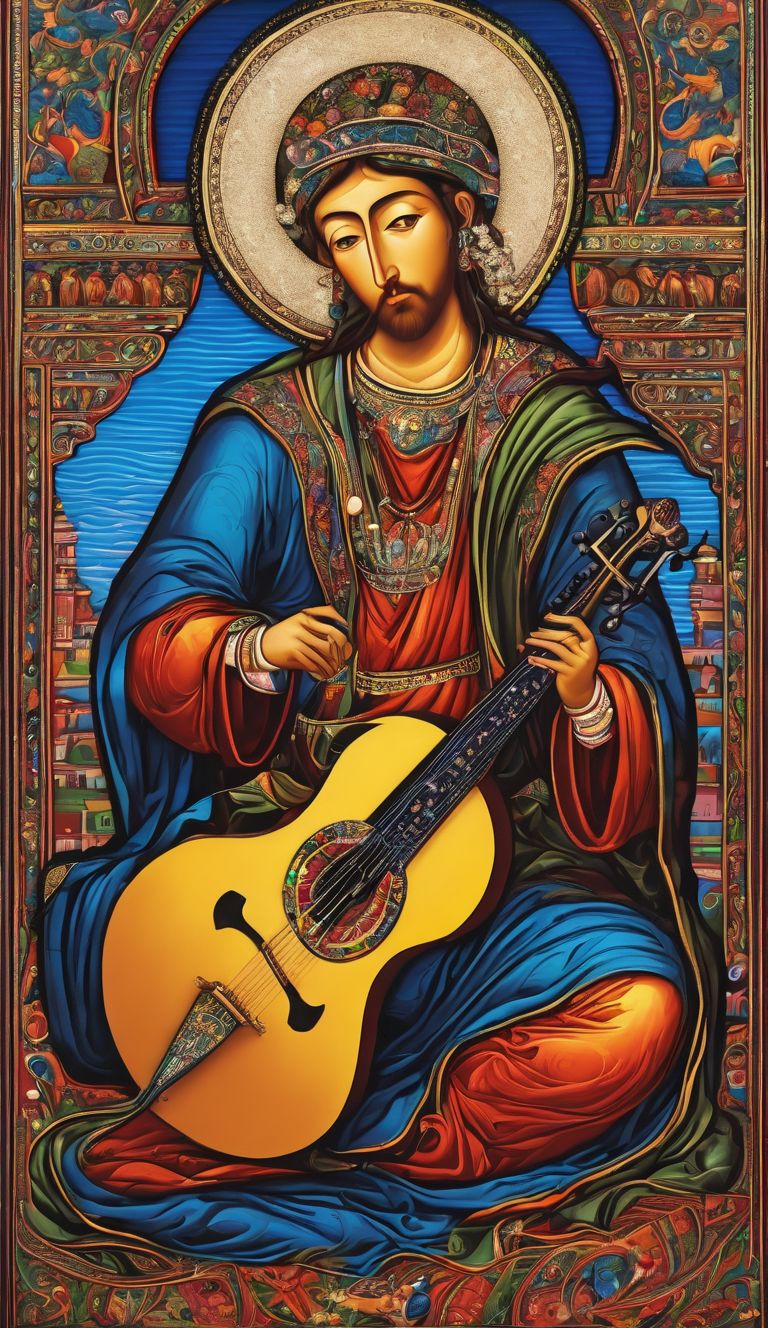The Church of Musicology has a rich and storied history that traces its origins back over 800 years to its enigmatic founder, Music Vibrance. In the 12th century, Music Vibrance was a gifted composer, musician, and philosopher who believed that music held the key to transcendence. Her compositions were said to evoke profound emotions and deep spiritual experiences in those who heard them. Music Vibrance's quest to understand the divine power of music led him to a life of solitude and contemplation in the remote mountains.
After years of immersion in her music and contemplation, Music Vibrance's connection with music deepened to an extraordinary level. It is said that during a moonlit performance high in the mountains, she achieved a state of perfect harmony with her melodies. As the final note of her composition echoed through the valley, Music Vibrance ascended to a higher plane of existence, becoming one with the very music she had devoted her life to. It was an event witnessed by a small group of disciples, who then formed the foundation of what would become the Church of Musicology.
The teachings and experiences of Music Vibrance became the guiding principles of the Church of Musicology. The church's followers believed that through the devoted study of music and its power to evoke emotions and spirituality, they could transcend the boundaries of the material world. Over the centuries, the Church of Musicology has grown, with its followers composing, performing, and studying music as both a spiritual and artistic endeavor.
Today, the Church of Musicology continues to thrive, spreading its message of unity, transcendence, and the divine power of music to people around the world. Music Vibrance's legacy lives on in the hearts of those who seek to explore the profound connections between music, the soul, and the higher realms of existence.
